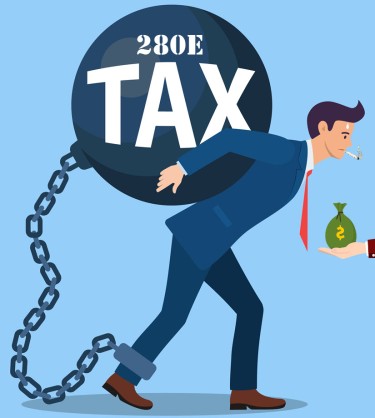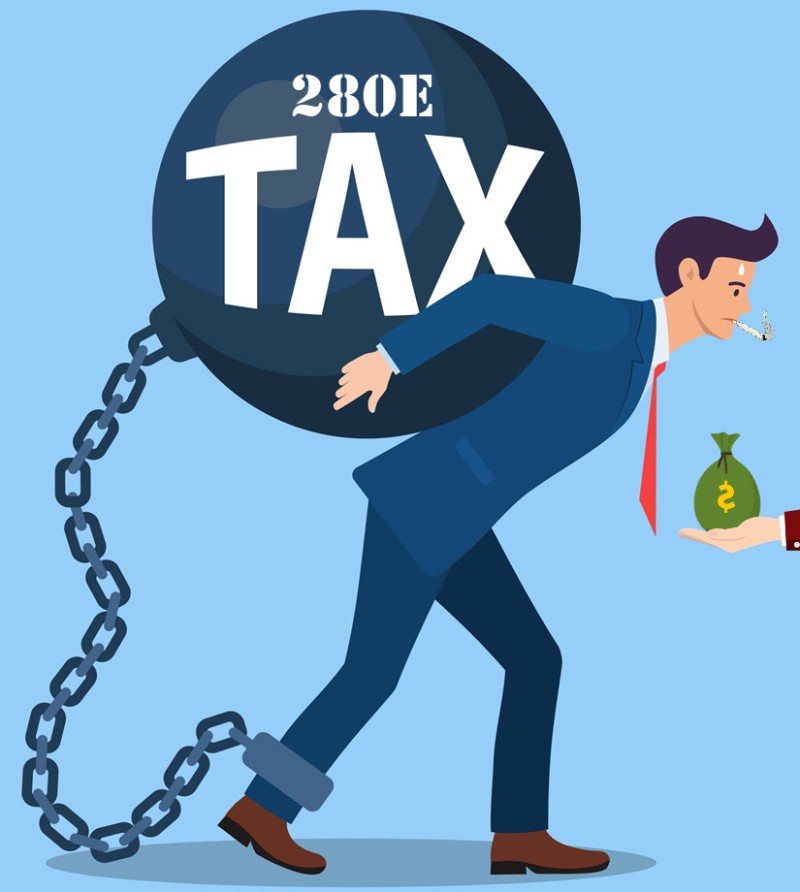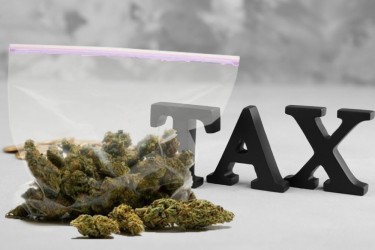
Whitney Economics, a cannabis research firm, recently conducted a comprehensive analysis of the impact of federal taxes on the cannabis industry. The findings revealed that in 2022, cannabis operators incurred an astonishing $1.8 billion in additional taxes compared to conventional businesses. Looking ahead, it is projected that this excess burden will rise even further to reach $2.1 billion in 2023.
The Reason Behind The Higher Tax Burden for Cannabis Operators
Despite the growing number of states that have legalized medicinal or adult-use cannabis operations, cannabis' classification as a Schedule I controlled substance under the Controlled Substances Act (CSA) remains unchanged.
Under this classification, cannabis businesses that operate per state law are deemed criminal enterprises engaged in the trafficking of a controlled substance under federal law. This label treats law-abiding business owners and operators as drug dealers peddling substances as harmful as cocaine and heroin. As such, these businesses are subjected to Section 280E.
Section 280E is a provision that punishes those involved in the trafficking of Schedule I or II drugs by prohibiting the deduction of "ordinary and necessary" business expenses. This includes below-the-line deductions, even after reducing gross receipts by the cost of goods sold (COGS). This results in federal income tax liability being calculated based on gross income rather than net income.
In this landscape, seemingly straightforward business choices such as accounting methods, entity selection, and ownership structure hold significant implications in terms of risk management. Suppose a cannabis business fails to strategically and meticulously structure itself from a tax standpoint. In that case, the impact of Section 280E's deduction disallowance can lead to effective tax bills and rates that match or even surpass the economic profits of the business.
This often leaves the business operating at a financial loss. Adding to the challenges, Section 280E places upper-tier owners of partnerships at significant risk of facing overwhelming federal tax liabilities that stem from their involvement in plant-touching cannabis partnerships.
The IRS acknowledges that Section 280E is somewhat complex and attempts to clarify its functioning. According to the IRS website, while the IRS Code Section 280E explicitly prohibits deductions and credits for illegal businesses, there is an exception. Cannabis business owners can deduct their cost of goods sold, representing the cost of their inventory. However, regular overhead expenses like advertising, wages and salaries, and travel expenses are not deductible.
Cannabis Tax Impact
Cannabis operators in the U.S. face many challenges beyond cannabis taxes, including burdensome anti-business regulations, the absence of banking services, and restrictions on interstate commerce.
The weight of the tax burden is so substantial that a mere 24.4% of surveyed cannabis operators reported being profitable, indicating a significant decline from the previous year's figure of 42%. Notably, cannabis retailers often contend with effective tax rates that surpass 70%.
A Bleak Outlook for Cannabis Businesses.
According to an upcoming business conditions survey report by Whitney Economics, cannabis operators are currently facing immense challenges and foresee no immediate improvements on the horizon. They are barely holding on and grappling with the difficult circumstances.
Beau Whitney, the chief economist at Whitney Economics, expressed that the cannabis industry is enduring severe economic hardship, and the existing regulatory and taxation framework is unsustainable, even in the short term.
Whitney further noted that many state markets appear to be on the verge of imminent collapse, which would inflict considerable damage on personal wealth and pose a disproportionate threat to smaller cannabis operators. He suggested that implementing tax reform could be a viable approach to stabilize the industry and generate billions in economic activity.
Reason for Optimism
Implementing tax reform could potentially provide much-needed support to the cannabis industry while also stimulating the generation of billions in economic activity. Despite the lack of success thus far in challenging the IRS's application of Section 280E and the constitutional grounds of Section 280E, there are still reasons for optimism within the industry.
A recent and highly notable case involved Harborside, a prominent California-based operator of cannabis dispensaries. They pursued the dismissal of their corporate income tax liabilities, totalling around $11 million, between July 2007 and July 2012. By doing so, they aimed to establish the unconstitutionality of Section 280E, which imposes taxes based on gross income rather than net income. This case has garnered significant attention and scrutiny.
Judge Daniel Bress described the ongoing "multimillion-dollar tax controversy" as the most recent effort by a medical marijuana retailer to mitigate the substantial tax implications imposed by Congress on businesses involved in the distribution of controlled substances. This case exemplifies the ongoing struggle faced by cannabis businesses regarding their tax liabilities.
Despite the recent legalization of marijuana sales in some states, federal law still categorizes it as a prohibited substance. This stark contrast between federal and state law creates the basis for our ongoing multimillion-dollar tax controversy.
Unfortunately, Harborside was unsuccessful in their case, and Section 280E remains in effect, preventing cannabis companies from claiming standard business deductions on their federal taxes. In a statement, the company expressed concern over the ongoing negative impact of Section 280E on the growth of the legal cannabis industry, the associated job creation, and the state and local tax revenue that would otherwise be generated.
While it may take a considerable time for a cannabis tax bill to be passed and for Section 280E to be overturned, cannabis business owners should anticipate frequent audits and the burden of excessively high tax rates until such legislation or a similar measure successfully navigates the Senate.
According to a recent analysis conducted by Whitney Economics, a reassessment of tax policy, specifically the reform of Section 280E, is projected to result in increased profitability for cannabis operators. Additionally, it would lead to a rise in cannabis employment and generate an estimated $35.2 billion in economic activity over ten years. These potential benefits come at a critical juncture for the cannabis industry, as it recently experienced its first decline in employment and is expected to face sluggish growth for the next seven quarters.
Conclusion
The cannabis sector has a variety of challenges, including high regulatory costs, financial restrictions, and inconsistencies in federal and state regulations. These elements contribute to the current economic turmoil and the low profitability experienced by many cannabis business owners.
However, tax reform, especially the revision of Section 280E, could lessen some of these costs and enable the industry to reach its full potential. Such measures might increase revenue, create jobs, and stimulate significant economic activity. Stakeholders are eager for constructive reforms to help the cannabis industry's sustainable development as it manages these challenges.







